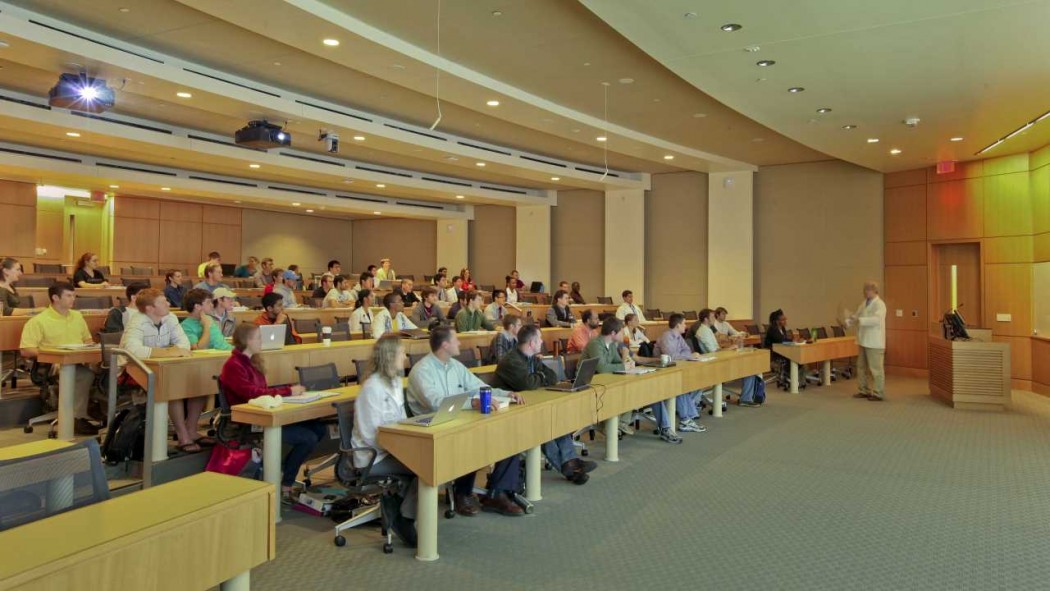Medical school. The mere mention of it brings about a range of emotions for many McGill students. Undergraduates of all ages and backgrounds do seem to agree on one thing though – it’s not easy. Even students who have planned to charge down the path to medical school since their youth have often been challenged by the harsh reality of fulfilling the tough pre-med requirements during their undergraduate degree.
Millions of students worldwide confront the same struggles: hours of studying, long sleepless nights, and a deep-seated fear of the MCAT. Those interested in this field often have to put aside their social life and friends in order to commit to years of school and training. It is important to remember, however, that every university is different and has its own set of challenges. So, I sat down with some hopeful future doctors at McGill to see how they are doing on their path to an MD.
Expectations vs. reality
Everyone interviewed agreed that McGill is more academically rigorous than they expected. It is no secret that McGill is a competitive school with an acceptance rate below 50% and a consistent ranking as one of the best universities in Canada. A lot of students come from being a big fish in a small pond to being a minnow in a sea of equally intelligent and capable minds.
A U1 Physiology student explained, “I expected this pre-professional track to be a very challenging one since I would have to excel in various different aspects and domains that aren’t all in my comfort zone.” It became clear after talking with many students that everyone has at least one subject area that they know will give them trouble. It is difficult for students to be proficient in many different areas of math and science when each has content that differs greatly and varied expectations for each class. To the dismay of many students, this is what is asked of them by med schools.
McGill classes are meant to have “the right amount of challenge” but that is balanced by the plentiful resources available to students in all majors. Many students revere FRezCa as an extremely helpful tool that gives students the one-on-one time with a TA or TEAM student (undergrad who excelled in the class) they crave. The name “FrezCa” stands for First-Year Residence Cafeteria tutorials. Started by Jim Ghoshdastidar, Residence Life Manager at Solin Hall and Teaching Assistant in the Department of Chemistry, and held in RVC, it aims to give students a couple of hours every day to get food, sit with friends, and discuss material going on in math and science classes.
While about 60-80 students attend FRezCa each day, it is often very easy to overlook these tools and try do everything on your own, but according to a U0 Science student, “never going to [FRezCa] was a grave mistake my grades will not pay for next semester.” Some students don’t like the environment of these crowded RVC tutorials, so there are also office hours, formal review sessions and often various study groups students are able to participate in. There is something for everyone.
Hardships of a Student
For many first years, figuring out how to divide their time is a struggle. In the words of a U1 Computer Science and Biology major, “I kind of failed time-management-wise which resulted naturally in a bittersweet grade in chemistry.” It’s easy to blow off a couple days of work and quickly end up under a mountain of assignments and midterms. For many, university has proven to be a serious adjustment where the most common wake-up call is a sub-par mark.
In the case of this student, among many others, study methods need to be changed in a matter of days and time managed more efficiently to bring up sinking marks. The secret, as put by another student, is, “You just need to find what works for you. Odds are it won’t work for the person next to you or the person next to them. Often times what you tried in your previous education won’t work either…it’s all part of a learning curve.” For this student, the trick was flashcards and re-watching lectures. For others, the simple thought of stacks of notecards bring about painful memories.
Students everywhere also have a habit of comparing themselves to others based on their grades. The students I spoke to all seem to agree on the fact that in a career path where a high GPA is essential, there is no room to slip up. This shouldn’t be a surprise at a university where we are given a number on day one, which is often the preferred way to identify us – even above our names.
In the hyper-competitive health industry, students can easily become swept up in believing that your GPA is the only measure of worthiness. Averages are released, students talk about individual grades, and sometimes classes put out full lists of everyone’s marks. In the words of a student, “Sometimes I feel like the pressure is crushing me.” Whether someone misses home, doesn’t like their residence, struggles to find friends or hundreds of other reasons, there is a lot more reflected in numbers than intelligence. It is starting to become a hard truth that often there is no way to account for this around McGill.
Where to get started: it’s not all bad
McGill is still undisputedly an amazing place to learn and grow. As a U1 Science student eloquently said, “Every time I walk on campus, I wonder how many wonderful physicians, engineers or biologists [will pass me] and how many I will meet during my time at McGill. I feel like McGill truly is a stimulating environment.” No matter how hard the classes may feel and how cutthroat students may be, students here have some of the greatest minds teaching them at the end of the day.
Many people know about chemical half-lives, but in the early 1900s, the former McGill professor Ernest Rutherford changed history by discovering them at McGill. He is just one of many at McGill whose cutting edge research shaped the way we understand the world. This amazing discovery happened right on campus.
Overall, there isn’t a “right way” to prepare for med school. Everyone has had different experiences that have gotten them to where they are presently: this individuality is what will make people excel in their career path. While it is impossible to know whether everyone interviewed here will continue the long path to medical school, it is certain that they and all students who try are bonded by this incredibly challenge experience in pursuit of their dreams.








